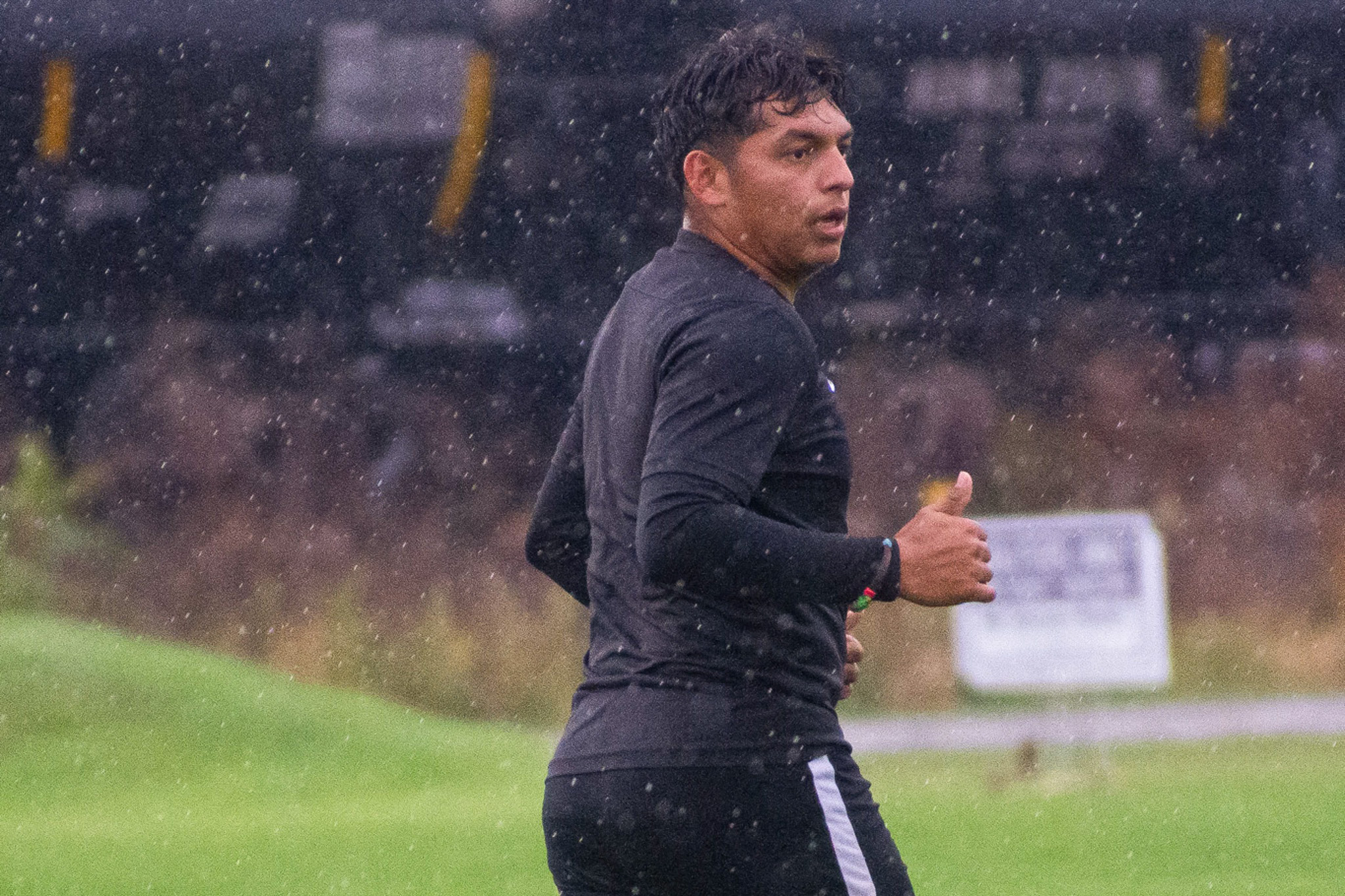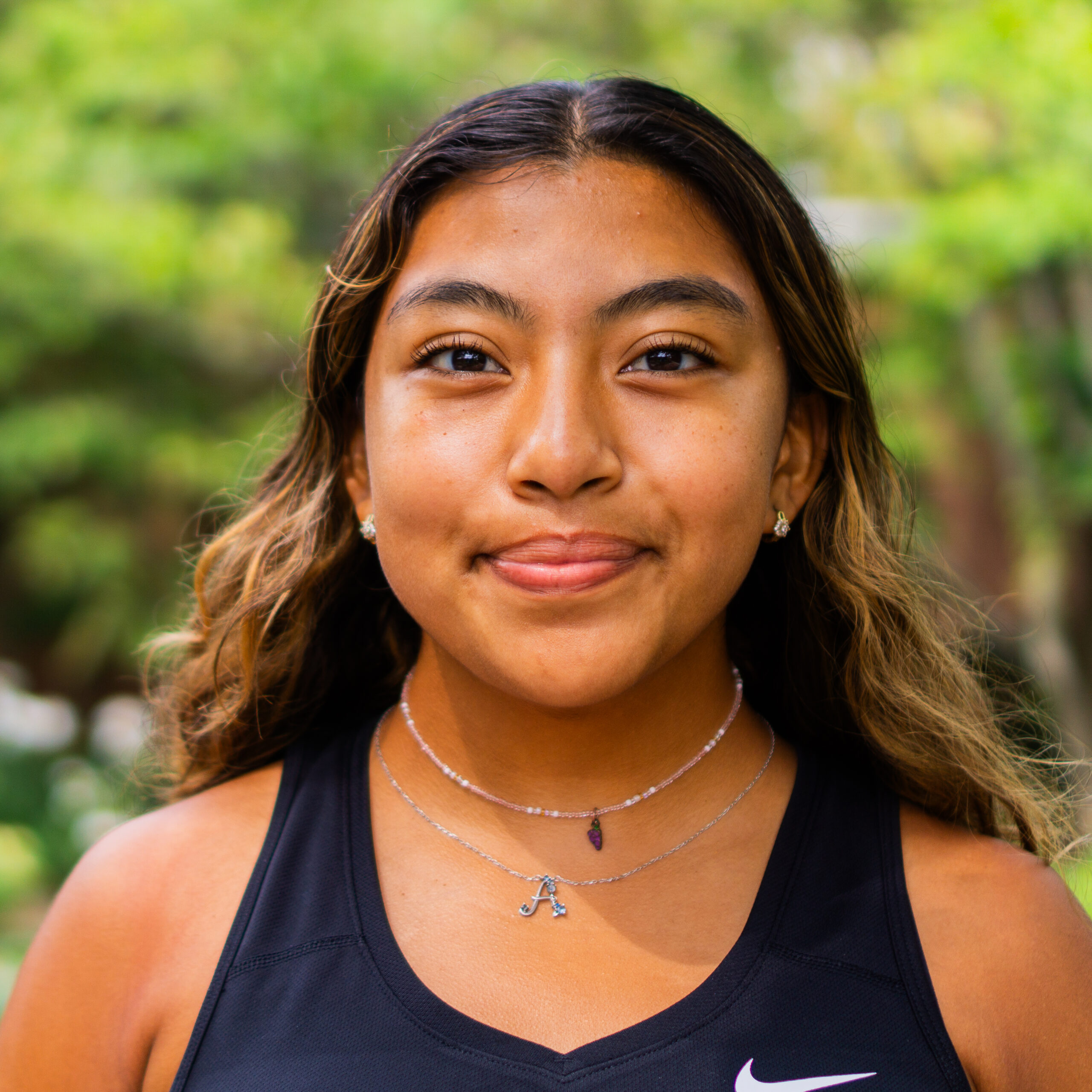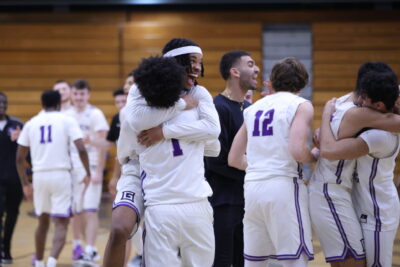A Hispanic-Serving Institution has to have at least 25% of its full-time undergraduate students identify as Hispanic for consecutive years.
In athletics, though, only 16.3% of student-athletes identify themselves as Hispanic, according to Justin DeWeese, assistant athletic director of communications. So, what does it mean to be a student-athlete as a Hispanic individual?Stephany Claudio, a junior psychology major, spoke about how she ended up running at GC. At first, Claudio ran for fun, but when high school started, she came to the realization that she needed to find a way to pay for college.
“I felt pressured to just keep going because that was what was getting me into college,” Claudio said. Getting a college education was the most important thing for her, but she needed to ensure that she could make it work. As Claudio began her college search, she thought more about running after high school.
“When I came [to visit Goshen], there were also some other Hispanic runners,” she said. “It motivated me to be like, ‘OK, I want to be up there too, I want to represent.’ I look up to a lot of the collegiate runners and I don’t see many Hispanic runners.”
Last year, Claudio qualified for the indoor track national championship on the 4×800-meter relay team. For her, visualizing being a college athlete was hard: “When I first came here, I didn’t think I could make it until I saw Maria and Britney do it. It was inspiring and empowering to me, and I realized that it doesn’t matter where you come from, it’s attainable.”
As she continues her collegiate career the meaning of running has shifted as she has tapped into her identity.
“I’m Hispanic. I am a Latina. And that’s just how it is. I can’t change that. And I don’t think I want to. It’s one of the things that I’m happiest about myself,” Claudio said.
For Eddy Garcia, a sophomore sprinter on the track and field team, being a Hispanic athlete is quite meaningful. His journey as a sprinter didn’t start until high school, when “it felt like everyone looked up to me because I wasn’t white.”
Garcia felt like many respected him because of his identity: “I wanted to go out there and do it for us,” he said. “It gave me a boost because you don’t see people of color in sprints.”
In high school, it was hard to find runners that looked like him. “Being on that starting line next to those guys, it changes you,” Garcia said, “especially when you don’t look like anyone.”
During a collegiate race, Garcia struggled with self-doubt and said he thought, “I’m the only one for a reason because others can’t. … I am not built like that.”
Garcia remembers a key moment in his sprinting career in his last high school meet: “The Goshen High School guys came up to me and said ‘Hey, Eddy, go do this for us. You’re the only one, like, go do this for us Hispanics.’ And I was like, alright.”
For Fredy Aguilera, a sophomore on the men’s soccer team from Choluteca, Honduras, passion was a theme in his sports upbringing.
Soccer, for Aguilera, “is that safe place where I go. It has played a big role in coming here and transitioning from different countries.”
Aguilera moved from Honduras to the U.S. when he was 12 years old. As he transitioned to playing soccer in college, he found that “it doesn’t matter how you look like as long as you have a passion.”
There is pressure for Aguilera in being a first-generation student, though. “My [younger] sister goes here this year,” he said, and “my brother wants to go to college. Now my cousin wants to go to college. Now that they begin to see me here playing fútbol and doing well in academics … you can’t mess up because they’re looking at you.”
Being the first one to go to college was inspiring to his family, and soccer has been a grounding part of Aguilera’s life. “If I didn’t have any sport in my life,” he said, “I don’t think I would be doing good [in] school.”
Aguilera said that a few of the things he likes most about being on the team are being able to talk in Spanish and getting to “learn from all the cultures.”
For Claudio, Garcia and Aguilera, collegiate athletics as a Hispanic student has been empowering. For Garcia, sprinting at GC has helped him realize “I am glad to be here.”


